Earth.
She has been our only home for well over 250,000+ years. Life and living organisms, however, have been on Earth the last 3.7 billion years, as microbes. But the history of living organisms on our planet has never been a guarantee, nor has it been perpetual.
Texas is experiencing record breaking triple digit temperatures never before seen in June. And traditionally the months of July and August are intolerably sweltering, even life-threatening if outside too long. Also, it is well documented how UNreliable our Texas electric grid is during extreme temps. Very little has changed since February 2021 when we lost our entire power grid statewide.
On a global scale there have been five mass extinction events during Earth’s 4.54 billion year history. The most catastrophic extinction to date, 250 million years ago, wiped out 96% of marine life and 70% of land species. It would be millions of years for these lifeforms to recover.

Is there a sixth extinction event happening now? Most scientists around the globe say yes, absolutely. I must agree with them. All five of these past extinction events were not triggered or caused by any living species on Earth. They were the consequence of terrestrial and cosmic forces, very rare and random occurrences. The current sixth extinction event, however, is intentionally self-inflicted.
Not to make light of our dire predicament, but one must admit that the 21st-century human race is no different than the fat, arrogantly smirking, boiling frog in the sauce pan. For the last 50-years we were warned repeatedly over and over and over again by expert scientists that this extinction event would indeed happen if we did not diminish then rid ourselves of fossil fuel addiction. It might now be too late to save ourselves from ourselves, save our ecosystems, our animal kingdoms, and our one and only home we have ever known.
What must be done… right away, immediately, with much haste?
∼ ∼ ∼ § ∼ ∼ ∼
The National Oceanic and Atmospheric Administration (NOAA) published a report in April 2023 stating that three key gases—carbon dioxide, methane, and nitrous oxide—which contribute to dangerous Greenhouse effects rose sharply in 2022 to levels never before seen or ever recorded.
“The observations collected by NOAA scientists in 2022 show that greenhouse gas emissions continue to rise at an alarming pace and will persist in the atmosphere for thousands of years,” said Rick Spinrad, Ph.D., NOAA administrator. “The time is now to address greenhouse gas pollution and to lower human-caused emissions as we continue to build toward a Climate-Ready Nation.”
The same warnings and alarms were announced as far back as the 1970’s and into the early ’80s that human industrial activity, mining, drilling, and pollution was a one-way ticket to extinction of species on the planet if not all living species. Now, almost five decades later very little, if anything, has changed with human activity and consumption. In fact, the data from NOAA shows it’s worse, much worse.

Because of the factual apologue earlier of the boiling frog, the human race must do everything possible to find another home planet. It is our only hope, if we want to save our species and some of the animal kingdom. We’ve destroyed and ignorantly neglected far too much, for far too long, toward saving this planet. It is over. We waited too long, too stupidly to do anything significant to change Earth’s demise. It’s time to get off our asses and take drastic measures, worldwide.
What has to be done, now?
Because science and her expert scientists always ask What if… what is possible? What isn’t possible, now? we do have answers to save ourselves, or at least some humans and some animals and plants. It is only a matter of applying our intelligence and ingenuity and totally abandon Bronze Age religious myths and tales of self-fulfilling prophecies of Armageddon or the End Times. Hah! Right. 🙄🤦♂️ Another boiling frog.
Every single day astrophysicists and cosmologists with NASA and the European Space Agency are locating numerous exoplanets for humans to colonize. The nearest habitable planet within a goldilocks zone—i.e. a planet that orbits a star/sun within an ideal distance to possess H2O and an atmosphere of oxygen and nitrogen protected from solar radiation—is 4.2 light years from Earth. That is 4.514 trillion miles away. A very, very long distance away. Easily more than two or three lifetimes away. It is called Proxima Centauri b.
Needless to say, if humans are to colonize an interstellar exoplanet, we must deal with its atmosphere, whatever it may consist of or not, and grow plants, trees, and animals necessary to sustain human life. Today, humanity has no other choices. It must be done and done immediately. It might still be too late. But we MUST act right now!
So… where would we go? Proxima B is the best destination right now. And there are a few other exoplanets to target. But they are further away than 4.2 light years. A staggering 25-trillion miles away (rough average) is no simple trip for a few hundred or thousands of human astronauts/cosmonauts and colonists. Planets within our own solar system are not ideal for human/animal habitation. They are extreme to say the least; nightmares actually.
Mars is perhaps a good “launching point” into interstellar space, but no more than a leaping point. Our Milky Way galaxy has over 300-billion stars with innumerable exoplanets within the ideal goldilocks zone. And there are at least over 2-trillion galaxies in the observable universe. This offers untold, unimaginable sorts of human opportunity to save ourselves and our basic way of life. To date, scientists have discovered about 3,000+ exoplanets within the ideal goldilocks zone of a star/sun.
But if these habitable “New Earths” like Proxima B are 4.2 light years away and more, how can we possibly get there in a relatively safe and reasonable time? And does humanity truly grasp the reality of how very grim our survival and future of our children, grandchildren, and descendants actually are here on Earth? To leave Earth it will require no less than a global collaboration. Are we mature and advanced enough to do this… now? Do we really have a choice?
Astroscience, their scientists, physicists, and engineers from around the world have already taken up this challenge to save humanity, some animal kingdoms, and our vital ecosystems for human life.
Interstellar Travel
With our outdated rocket propellants (Saturn 5 at 24,000 mph), reaching Proxima B would take us over 120,000 years to reach. Completely out of the question given the apathetic disaster humans have created for ourselves here on Earth. We require more. We require better advancements.
Former NASA shuttle astronaut Franklin R. Chang-Diaz, founder of the Ad Astra Rocket Company in Houston, Texas, has developed the first phase of interstellar travel for humans. Plasma.
Charged gas particles such as plasma possess much more energy than our current rocket propulsion. It basically works like this: gas is compressed into a cavity/chamber. Inside the cavity is an antenna that shines radio waves throughout therefore turning the gas into highly charged plasma (3-5 million degrees), similar to lightening bolts in thunderstorms. A magnetic field directs the charged plasma to the smaller rear nozzle or cone of the engine creating a remarkable thrust never before harnessed by humans. With this level of propulsion spacecraft would be able to achieve speeds 10-times faster than current rocket engines. This gets us to Mars in as little as 39-days as opposed to 9-months with 1950’s – 1960’s engines. However, even with this propulsion system it would take us about 2,000 years to reach Proxima B.
Dr. Chang-Diaz states his plasma engine is not the system to take us to Proxima B, but would be the precursor to a later system more advanced and high-powered than his plasma rocket. We need technology that is even faster than plasma engines.
At the University of California Santa Barbara a team led by professor and astrophysicist Philip Lubin is developing a rocket system powered only by light. With this technology they calculate they can send a spacecraft to Proxima B in just 20-years. Light transfers energy into a panel of veins which push it forward just as its momentum carries it through air and space. Light from our own Sun has been propelling the Japanese experimental spacecraft IKAROS for over 12-years. Based on this technology Dr. Lubin’s plan is to have a six mile long array of satellite dishes and/or solar rays from our Sun directing light particles onto a spacecraft sail propelling it through interstellar space. When focused onto the sail it will accelerate the craft to 1/5th the speed of light. Yes, you read that correctly: 1/5th the speed of light.

There are innumerable propulsion systems in development across the U.S. and Europe that can offer the speeds required for exoplanet colonization in reasonable timeframes.
The initial phase of this journey would be exploratory in nature to determine how viable Proxima B would be to sustain life, specifically human, animal, and plant life to eventually colonize the “New Earth” planet. But with these technological advancements come other questions and issues. How will we choose these intergalactic human space travelers? What qualities, backgrounds, skills, and talents will be needed to travel such long distances, one-way distances? How many human space-travelers should be aboard these spacecrafts?
It is very well-known that for a species to avoid extinction, biological and genetic diversity is a must. The first Proxima B colonists must be at least in the several hundreds if not thousands of human space-goers. The same applies for animals, plants, and microbes. And these missions will require several follow-up trips. We cannot expect to send 8.1 billion humans in two or three costly trips. This will undoubtedly raise many skills, experience, and moral questions such as: Who deserves to go and survive? Who deserves to stay on a dying planet like Earth?
Former NASA astronaut and 211-day ISS resident, Mike Barratt, says that these first, second, and third generation Proxima B colonists will have to be proficient in English and Russian languages. There’s the very first hurdle: American and Russian relations. The next hurdle is selecting the choice explorers, the choice pioneers, and then the choice colonists. Almost all astrophysicists and botanists explain that these initial generations will be critical to colonizing any New Earth exoplanet and sustaining life.
How many intergalactic human travelers will be needed to start life on Proxima B? The answer to that question becomes merely genetic and biological. If there is not enough genetic variation among the first generations of Proxima B crews, their odds of surviving the hazards of interstellar space and a new planet are drastically reduced. Does this mean we must hand pick our BEST human travelers with the BEST genetic and biological qualities? In doing so does this pose a moral bias, an unnatural selection of “better humans” over lesser, disadvantaged humans?
Population geneticist, Dr. Brandie Smith, states that in order for the human species to have a decent chance of survival and sustained life on an alien New Earth planet, they must be among a large, random selection of a highly varied genetic human population. The issue in this selection process is that humans do not know which genes and DNA to select for colonizing an alien planet, its environment and climate, and its resources which need to be used and consumed. Human specimens seen as “the best” here on Earth may not be suitable for a largely unknown exoplanet 4.2 light years away with completely different environmental factors and forces. Hence, the first generations to Proxima B must be in the upper hundreds or thousands to achieve genetic diversity. Protecting their bodies in the hostile environs of deep space will also be paramount. Radiation exposure is a continual, nemesising threat to deep space travelers along with extreme temperatures and very long spells of zero gravity.
At the NASA Johnson Space Center in Houston, Texas, every American astronaut returning from a long stay in the ISS is studied extensively for many months for the effects of zero gravity and any radiation exposure on the human body. In order to counter the negative effects of weightlessness on the human body, ISS crews are required to exercise a minimum of 2.5 hours daily—jogging, lifting, and pushing the cardiovascular system to safe levels so that muscle and bone mass loss are minimized. But even this regular routine is not enough when they return to Earth.
Landing on a distant planet after some 20-years in interstellar travel in their weakened, fragile condition, Proxima B colonists would struggle immensely to construct anything, let alone a new human civilization. ISS astronauts and cosmonauts who have been in zero gravity over 100–200 days return to Earth with the physical coordination and balance of a young 2-3 year old toddler. It takes at least 5-months for them to recover to 85% to 90% of their normal adult physiology; 6-8 months to return to 100% functionality.
Supplies to Last During Travel & On A New Earth
Food and life support systems would also have to safely last the long duration in deep space travel. That is an enormous engineering and supply nightmare, even for just 40-50 travelers, let alone 1,000+ astronauts and cosmonauts. As mentioned earlier, prolonged radiation exposure to human DNA leads to lethal cancers and birth defects to eventual Proxima B babies. How do human space travelers avoid deadly radiation and pack enough supplies, for 1,000+ space-farers, for 20–23 years in hostile interstellar travel?
Dutch pharmacologist Robert Henning, who has worked closely with the European Space Agency for the last several years, believes he has found the answer to deep space human hibernation that would save on the massive volume of food and supplies (and weight), and also protect human astronauts and cosmonauts from lethal radiation exposure: hydrogen sulfide.
Like the marmot, the arctic ground squirrel, the brown bear, and the dwarf lemur, these mammals and many more all hibernate to survive months of frigid winter conditions. This cuts back on their energy consumption during months of severe food scarcity. The breathing slows, as well as the heartbeat, and the metabolic rate all reduce by as much as 98%. Needed oxygen during non-winter months is replaced by hydrogen sulfide. Henning admits that H2S is not as efficient as oxygen, but he uses a similar chemical to put human cells into hibernation. What’s more exceptional is that when Henning exposes these hibernating human cells to lethal doses of radiation the DNA is unchanged, undamaged. His compound can safeguard the Proxima B crews from crippling and deadly cancerous radiation. Two more exceptional benefits of deep space hibernation are 1) the significant reduction of psychological stressors of long-term isolation in confined quarters and 2) mitigating the aging process of conscious travel over extreme distances.
However, new solutions to unknown complicated problems are rarely failproof over repeated attempts or journeys. There are and will be, hopefully minimal, unexpected consequences. Yet, historically with any explorations into unchartered, potentially hazardous frontiers, when was “failproof” guaranteed?
Robert Henning also acknowledges that even though he has the chemical compound to put human deep space travelers into hibernation, he does not have a solution to bringing them out of it and when to do so. NASA and the ESA have yet to devise a reliable solution either. However, there has been recent studies and findings by astrobiologists and biomedical engineers utilizing a wearable ultrasound transducer. From Associate Professor Hong Chen and research associate Yaoheng (Mack) Yang, both at Washington University St. Louis’ (MO) School of Engineering and School of Medicine respectively, describe their non-invasive technique:
“We developed an automatic closed-loop feedback controller to achieve long-duration and stable ultrasound-induced hypothermia and hypometabolism by controlling of the ultrasound output,” Chen said. “The closed-loop feedback controller set the desired body temperature to be lower than 34C [93.2F], which was previously reported as critical for natural torpor in mice. This feedback-controlled UIH kept the mouse body temperature at 32.95C [91.31F] for about 24 hours and recovered to normal temperature after ultrasound was off.”
— hong chen, Induction of a torpor-like state with ultrasound, mckelvey school of engineering, may 2023
Although we predict that Proxima B will have similar Earth-like conditions such as a breathable atmosphere, rocky planet (minerals and other natural resources), liquid water both on the surface and underground, slightly more gravitational pull or weight due to its mass, the exoplanet will not be identical to Earth. Proxima B will have many unknown challenges for long-term survival there.
What if Proxima B does not have an atmosphere—oxygen, carbon, hydrogen, nitrogen, and sulfur—to support human habitation or in bulk—nitrogen, phosphorous, potassium as must have elements, then calcium, magnesium, and sulfur as secondary elements—to grow healthy plants? These seven elements are critical to human and vegetation to promote and sustain life. If there are none of these elements or very little of them in the atmosphere, then what are the alternatives?
In Oracle, Arizona, at Biosphere 2, a totally self-contained, University of Arizona research lab facility to quantify the devastation and consequences of human-caused Climate Change on Earth as well as what might be possible to grow on distant exoplanets, they may have some answers. Here in enclosed domes scientists experiment and ask What can be done on/in an unsuitable, non-Earth hostile atmosphere? Since 1986 they have been compiling results of their totally sealed environment—from Earth’s currently poor, deteriorating conditions—to determine what could be constructed, maintained, and expanded on a planet like Proxima B.
Under the seven glass biodomes are an ocean/sea, a mangrove wetland, a tropical rainforest, a Savannah grassland, and a fog desert. These recreated ecosystems demand an enormous amount of engineering and heavy manmade materials for their proper climates and long-term survival. Obviously, the colossal scale to make and support these biome ecosystems would be impossible to transport 4.2 light years away, or further, in an interstellar spaceship with very limited cargo space and 1,000+ crewmembers. Ah, but there is a highly industrious, foraging, building insect species here on Earth that just might be the initial solution to this monumental exoplanet challenge.
At the Kennedy Space Center in Florida, senior technology engineer Rob Mueller has developed a probable solution to large scale exoplanet biome construction: swarmies. Or another description would be swarming ants.
Mueller’s team at NASA have developed stand-alone, robotic ant-like, foraging hunters in the form of small 4-wheeled rovers, hundreds and hundreds of them. These swarmies carry lifting-claws and mineral sensors to excavate necessary resources to mine then build a basic first-stage colony for later arriving space crews. Once building materials have been identified by the swarmies their digital white pebbles and bread-crumb trail (Hansel & Gretel) is transmitted to the excavating machines called RASSOR’s. These larger mining machines collect the exoplanet’s natural resources (e.g. regolith) to be converted into bricks, mortar, rebar, polymer rope, many materials that can be used to build early stage biomes, living quarters, supply warehouses, et al.
Mueller’s team have also developed a fully automated, stand-alone production/assembly line for our own Moon, Mars, and Proxima B when these raw materials are brought by the RASSOR’s for final manufacturing. By utilizing the mineral resources already present on the exoplanets, costs in weight, fuel, building supplies and materials for intergalactic space travel-colonization to Proxima B and beyond is drastically cut and minimized. Shipping all of these cargos from Earth or even our Moon would be prohibitive and unrealistic.
The ideas and imaginations of going to and building another human, animal, and plant-sustained civilization on a New Earth are no longer fantasies of science-fiction. These are not just achievable, they are now obtainable. But we are quickly running out of time, “time” to save some humans and remnants of this deteriorating, dying planet caused by human activity and many decades of lethargic negligence. Our survival is in the stars, not here.
If We Don’t Outlaw Climate Change Pollutants
For the next 10–50 years the human race, as a whole, MUST act and act aggressively right away. If not as a collective species, then at minimum every single 1st-world and stable 2nd-world nation must act as one! The bad health and condition of our planet is much, much worse than previously forecasted in the 1970’s, 80’s, or 90’s.
In addition to our fast shrinking polar icecaps, melting glaciers, warming oceans, more extreme weather events, and unstable atmosphere—to name only five frequently occurring events—one example of the fast decaying health of Earth is currently close to home for me: the Gulf of Mexico.
Since at least 2018 the Mississippi River Watershed has been washing enormous amounts of man-made nutrients into the Gulf of Mexico, particularly high amounts of nitrogen and phosphorus. These exorbitant amounts of nitrogen and phosphorus and other chemicals come from increased heavy rains and melting snow over lawns, farmlands, sewage treatment plants, chemical refineries, and other sources into all the Mississippi River’s tributaries, then into the Mississippi and finally into the Gulf of Mexico.
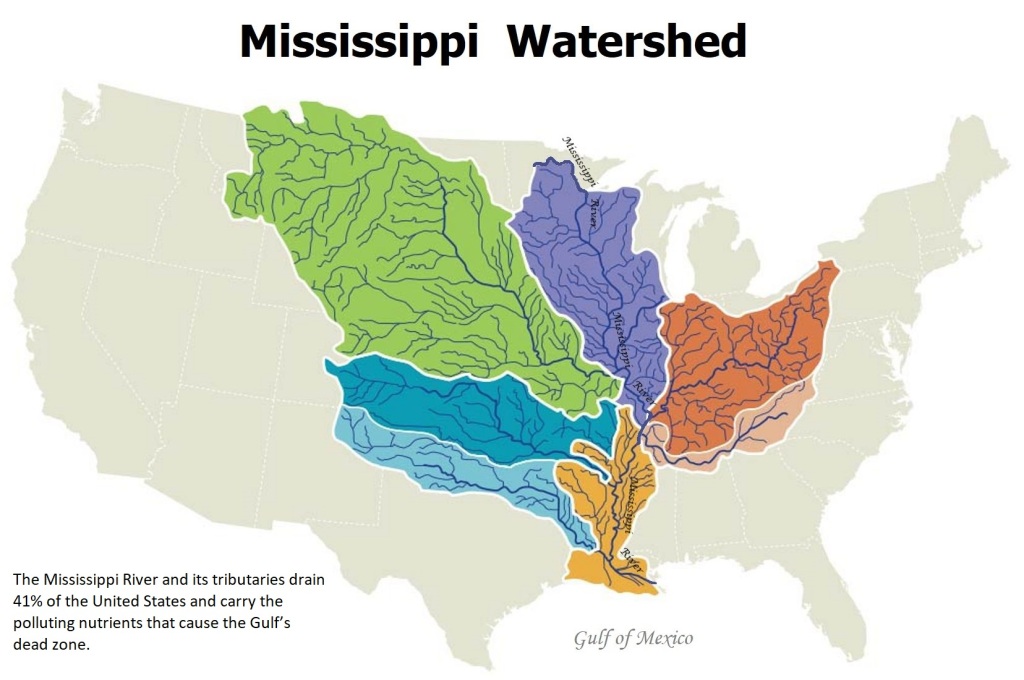
When these man-made nutrient pollutants empty into the Gulf, they trigger algae blooms that choke off oxygen in water making it very difficult, if not impossible, for marine life to survive. The impact has a negative domino effect on other ecosystems and industries. Read this report from The Nature Conservancy for more details on these severe impacts.
“NOAA is forecasting an above-average summer “dead zone” in the Gulf of Mexico covering approximately 5,827 square miles — an area roughly the size of Connecticut. The dead zone, or hypoxic area, is an area of low oxygen that can kill fish and other marine life. It occurs every summer and is primarily a result of excess nutrient pollution from human activities in cities and farm areas throughout the Mississippi-Atchafalaya watershed. The average dead zone measurement is 5,205 square miles over the 37-year period of record.”
— national oceanic atmospheric administration, “NOAA forecasts above-average summer ‘dead zone’ in Gulf of Mexico” – june 13, 2024
Examine this 37-year data collection of the Gulf’s Dead Zone Hypoxia Area below. Then imagine the 2024 forecast (5,827 sq miles) in the first image and at the far right, second image:
Humans, people of Earth, it is way beyond time to halt being indifferent, apathetic, self-arrogant or intentionally ignorant of what we have been doing to our one and only planet for over 50-years, technically though since 1800 and the Industrial Revolution.
Here is a short quiz: List everything humans have done the last two centuries to curb, to slow, to stop consuming/using Climate Change pollutants. List everything even in the last century or half century. What significant actions or deterrents have we, our governments, our corporations, and privately at home done that has slowed catastrophic, extinction causing climate events? Did you use two hands? One hand to name them all? Have all the well-known extreme weather events and consequences of them, e.g. hurricanes, typhoons, flooding, droughts, bigger tornadoes, animal and plant extinctions, extreme temperatures, famine, plagues, pandemics, etc., have they decreased or reversed the last 100- or even 50-years?
It does not take a genius or even an intelligent person to fully realize and admit that what humans have been doing daily the last two centuries, especially since the end of World War II, and continue to not do… is nowhere near enough. And denying or going about business as usual, day in and day out as if nothing is happening or has happened… is NOT working. In fact, the planet is much, much worse than it was in 1760, 1830, 1945, 1990, or even 2000. Wake up world, or your habitat, your own kitchen and pantry, your very existence will soon be completely destroyed. Stop the negligence and outlaw climate change pollutants. Now.
Then, get on our collective horses and giddy up, and find fast a New Earth. At this current rate the clock is at 11:54pm and will not stop ticking until 12:01am. The end of Earth. Is there honestly another alternative? Can we happy(?) boiling frogs get ourselves out of the saucepan we keep inflaming hotter and hotter?
Further reading:
Antartica Ice Sheet — Researchers Have New Melting Concerns
Death Valley Heat — Could Temps Break New Records?
More Records Broken — Daily, Monthly Records Shattered
Live Smart – Love Much – Laugh Often – Learn Always

The Professor’s Convatorium © 2023 by Professor Taboo is licensed under CC BY-NC-ND 4.0


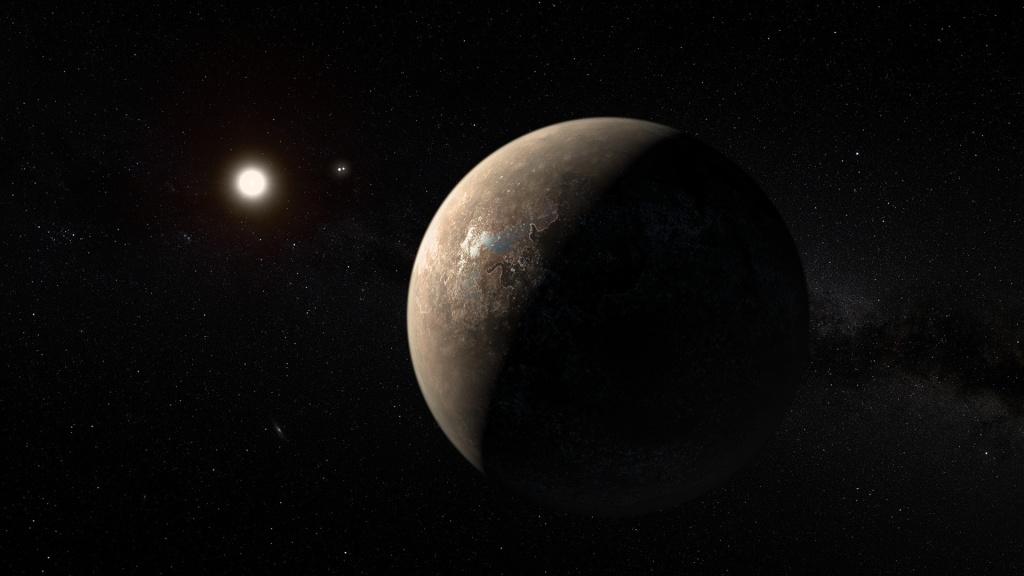
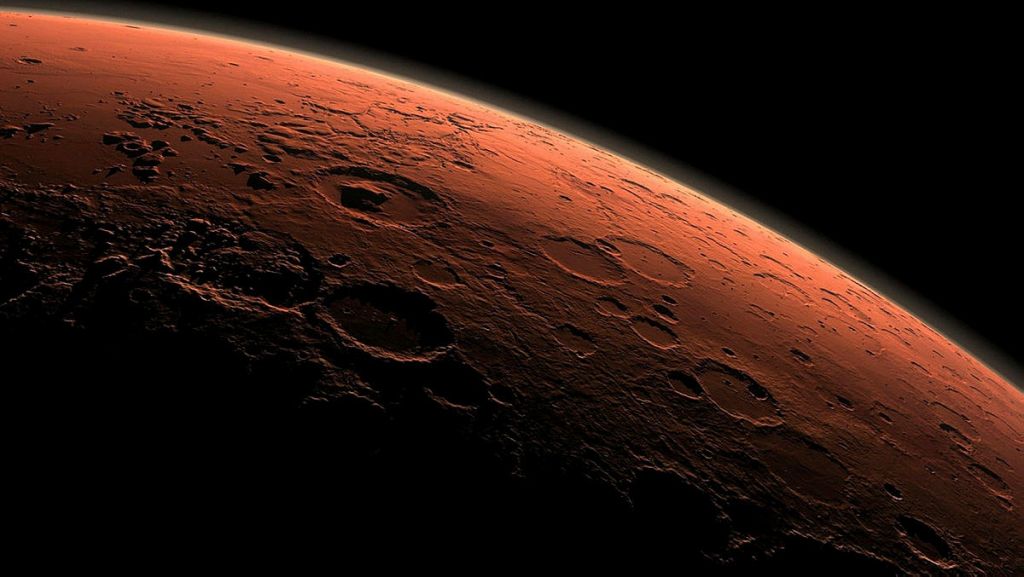
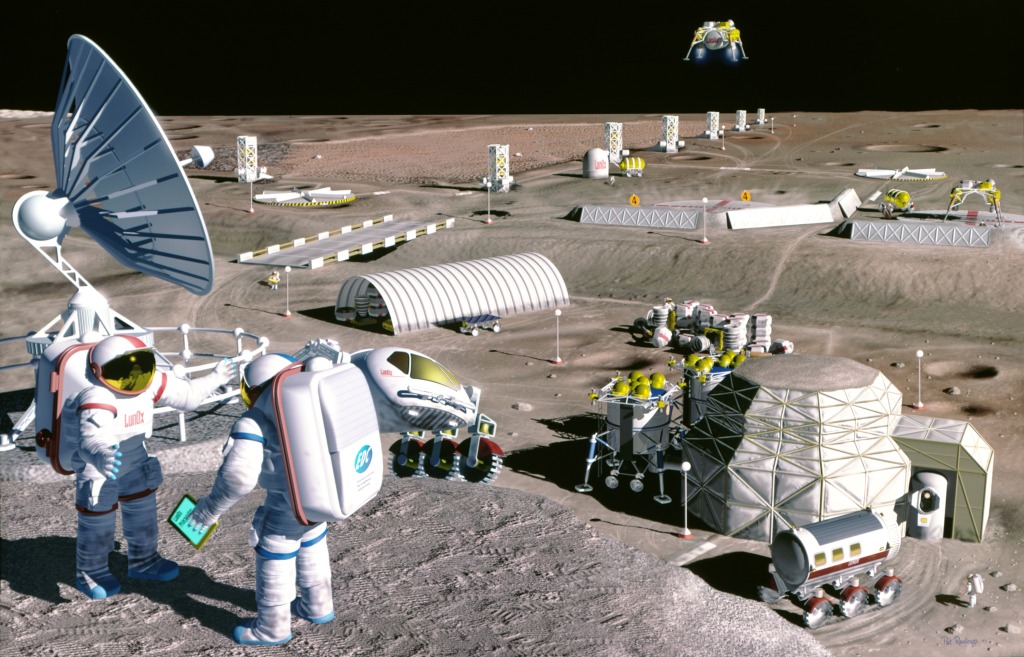





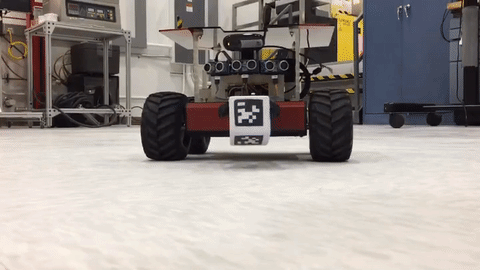
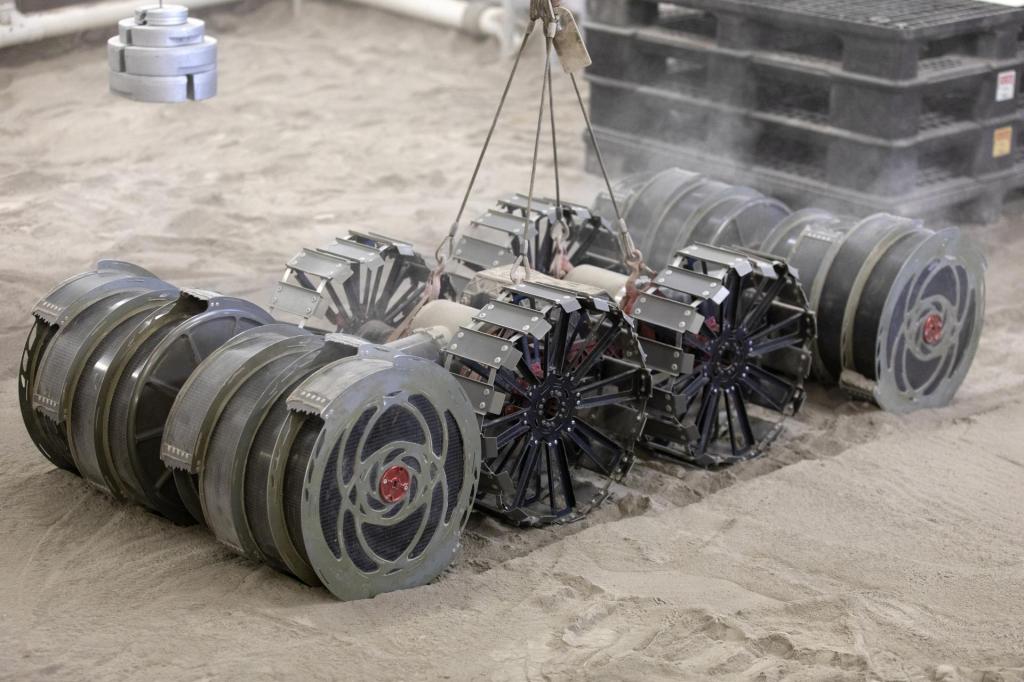

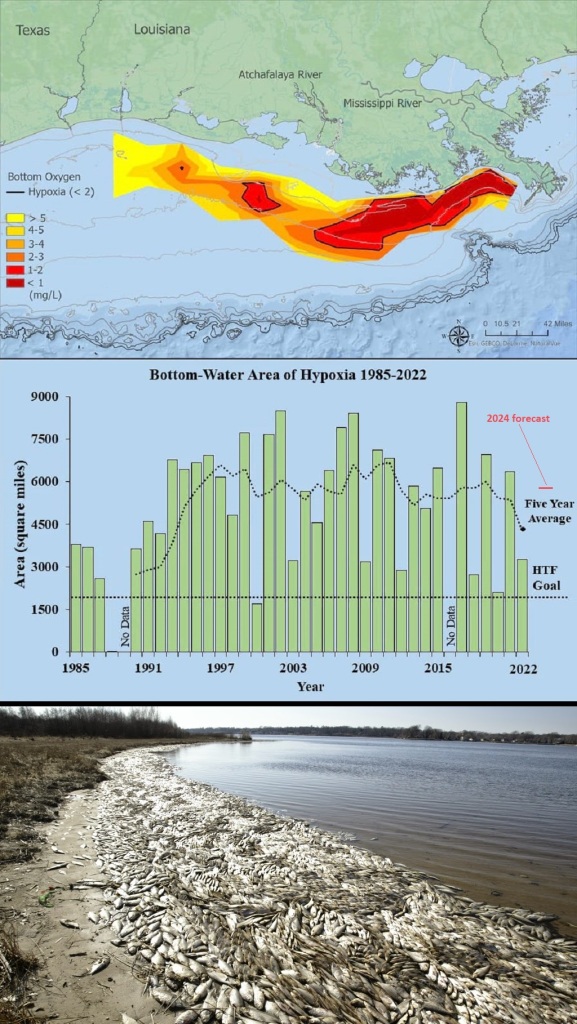
We are all to blame for allowing our governments to cater to the wealthy, who have no interest at all in sustaining humans or other life on Earth. To them, there’s no money in it, and they are too asininely stupid to care about anything but their own money-hoarding schemes. Wealthy is the greatest disease the world is facing today. The wealthy are paying us to be apathetic to the needs of our home world. And we are letting them do it.
I applaud you, Prof, for wasting so much time and effort researching, organizing, and ultimately writing this post, but it will have no effect on enough people to change anything — we are too self-centered and greedy to care about future lives, and this is why we are an evolutionary dead-end. Intelligence is nature’s worst-ever invention! We have just enough intelligence to destroy our world and make it unlivable for higher lifeforms — anything higher than cockroaches — but not enough to save us from ourselves.
And to answer your unasked question about how do we get to the stars, there is only 1 way — to create immortal people! Nothing else will ever work.
LikeLiked by 3 people
Well rawgod, I certainly appreciate and applaud you in return for your blunt candor. 😄 I actually find Realists, anytime, always, every day over deluded hyper-Optimists more refreshing. Thank you Sir.
If there is ONE point you’ve made that I wholeheartedly agree with… it is your factual assessment of the world’s obese wealthiest (corporate or individuals), especially in a greed-driven hyper-capitalistic country like the U.S. and now China. And those two countries are not only the WORST contributors to Climate Change pollutants, but also the two that can make a huge difference in saving our planet and life on it!
Wow, did you hit the bulls-eye perfectly right there! 🎯 Excellent comment rawgod, excellent. Thank you Sir. 🙏
LikeLiked by 1 person
Well, Prof, it just so happens the book I am working on is indirectly associated with space travel, without the aid of FTL speeds. If it ever gets publ8shed you will see why I said what I said, because after thinking about it for a couple decsdes I could see no other way to success.
But in the here and now, when we are unlikely to even land humans on Mars before our planet becomes unliveable, either we change the direction we are going or we commit racial suicide. This is the most likely outcome right now. We are smart enough to save ourselves, but if the will is not there it can’t happen.
We need to start by taking power back from the wealthy, and thanks to MAGAtmania we are not cohesive enough to do that!
LikeLiked by 3 people
Terminal Stupidity is a far deadlier disease than any other, not enough research has been done into the eradication. We’ve enough evidence of the symptoms thank you.
LikeLike
Yup!
LikeLiked by 1 person
Well, thank you so much, Mister D for ruining an otherwise delicious and relaxing breakfast of omlette and fresh coffee.
Trigger warning in future, okay?
That aside, yes, a very interesting and somewhat depressing post, but nothing many of us are unfamiliar with.
The section on space travel was fascinating.
I wonder, have you ever heard of a Bussard Ramjet before?
Too technical for my scouser brain but ostensibly it is a spaceship wot uses a scoop to scoop up space stuff to go very, very fast.
Saves on petrol, apparently.
I noted that a prerequisite for spacefarers was the ability to speak English and Russian.
That immediately eliminates Scousers and Texans, as far as English goes, right?
Maybe we could learn Russian?
And why not Chinese?
Those clever little fellows will be taking over the world pretty soon.
A step to the right…but still within context.
An interesting doccie on Netflix about food production called Poisoned.
One of the more disturbing points was the fact certain farms producing leafy green crops are use water from canals that run alongside huge cattle feed lots.
And you don’t need a PhD to know where all the cow shit drains into.
Like industrial waste of old ( and even today, I suspect) much of the effluent ends up in rivers and then the sea.
All I can say is.. YUCK!!!
Good time to start growing your own veg?
Nice one Prof.
😊
LikeLiked by 1 person
BWAHAHAHA! 😂 Those DAYUM bovines and the shit they start! Or restart. Or restart an end, or rear-end? 🤔
LMAO! 😆 Yes, we Texans already butcher and mutilate the English language. Imagine what we’d do to Russian or even indecipherable or impossibly encrypted Scouser L’poolian? hehe 😉
And I have gone to and continue to grow more and more of my own 4 Michelin Star food and gourmet cheffing! 😁
LikeLiked by 1 person
Thank you for a most informative post PT.
To cover the likelihood of a Mass Extinction Event, resulting from Humanity’s profligacy and failure to evolve ethically and the possibly options for migration from the planet along with the problems arsing is no mean task.
The problems are indeed numerous.
The first being the popular wilful denial and attendant ignorance on the subject of climate change. There is a substantial group who simply do not want to feel this is a problem, deep down many of them are unsettled by the implications but wish to avoid the issue and thus go into denial while making excuses. A visit to any post concerning weather forecasts will reveal those who just will not accept the evidence, and of course there are those who will try to make profit out of this feeling of one sort or another.
The logistics of moving even a relatively small number (0.1% of the population is 8 million) in a fleet of sustainable craft would be a vast undertaking, and would be mired in politics of all sorts, particularly the thorny question diversion of resources. The peddlers of Ignorance would have a fine time with that.
Those two give rise to numerous subjects for discussion, some of which you have discussed here. The idea of convincing folk we have to leave could give rise to a panic and then a controversy over who has the right to go, leaving the rest to….doom? A difficult sell.
There is a grim possibility that the dynamics of the planet may well take over and there will be a mass extinction which will exact a proportionality larger toll on Humanity which is gradually losing the skill to survive without all the benefits of ‘civilisation’ . It may be that at some stage the Human population may be scythed down to below a billion, at which stage it is likely the civilisations we understand will have vanished.
The fossil, the geological and the more recent (say last 4,000 years) environmental records indicate that the planet has the last say when it comes to the durability and sustainability of Humanity.
We may be entering a stage when the question will be. How to we survive the Coming Reaction to Our Carelessness?
LikeLiked by 1 person
i wrote in my comment about the only viable way to reach the stars, but I doubt that will ever happen. So, having said that, someone somewhere is bound to try, no matter how impossible the odds of success are.
if you do not want to cause conflict over who will go and who will be left behind, the way to do that is to design a prohect of some other kind, and don’t even tell the selectees that they eill be going into trans-solar space until they are on board the ship, preferably not boarding on Earth.
No, it would not be an easy secret to keep, nor an ethical decision to make for someone else, but the better part of valour here is to avoid conflict. Mum’s the word!
LikeLiked by 2 people
Roger, thank you so much for a great comment/feedback. I’ve been quite busy this morning and afternoon, and it isn’t stopping… so I probably need to properly reply to you tomorrow. My apologies Sir. I will, however, reply no matter what! 😊
LikeLike
Regarding your first paragraph: “The first being the popular wilful denial and…“
Roger, it is beyond my comprehension how and why humans can be so willfully an ‘osterich over sand’ so to speak when their deluded negligence will result LITERALLY descimating their own kitchen, pantry, and existence, not just for themselves, but more astonnishingly their own blood descendants! Utterly baffling! And yes, the profit exploiters/opportunits? They are merely immoral predators. Nothing more. Or a lot less.
Your next two paragraphs: “The logistics of moving even…” and “Those two give rise to numerous subjects…“
Excellent points and elaborations of what I was attempting to express and intrigue my readers/followers. Which actually leads to my one question I was going to ask all my commenters… “So if moving SOME of Earth’s prime choice humans to a New Earth, with all its many MANY complexities, risks, and prejudices out the whaah-zoo is not yet a viable solution in the early 21st-century, then…
What MUST be done right now, right here on Earth with the dire crisis we have all created for ourselves the last 200-, 100-, or 50-years!?” And why should we think we’d do anything significant now if we never did over two, one, or half a century?
Could not agree more Roger! And yes, for me personally and in my above-average education obtained level, we are fast approaching a large (massive?) weeding out of perhaps Natural Selection of our species. No doubt in my mind.
To your last point: “We may be entering a stage when…” Severe lethargic carelessness? If those consequences are not extremely sudden/immediate and not worldwide enough to never give us a chance to best recover, then IF there are humans leftover, we will be THRUST so far back in the evolutionary time table we must RESET for whatever new life this planet dictates to us. And those “chances” will take us one or two millenia to possibly return to or recover from.
LikeLike
Hey boss. A correction for you. 1 light year is 5.88 TRILLION miles, not billions. The task to leave is bigger than you thought.
LikeLiked by 1 person
Whoops. Thank you Jim for catching that. I’ll be sure to correct that as soon as I can. Right now, I have a very busy morning ahead. But again, thank you kindly fine Sir. 😉
LikeLiked by 1 person
It seems that humanity will be starving to death while desperately trying to order a pizza on the Internet.
LikeLiked by 1 person
😄
LikeLike
Interesting/fascinating post — although I must admit I couldn’t/didn’t finish it! 😝– but I most assuredly got the point!
As I’ve occasionally mentioned on my own blog, the idea of humanity “moving to” another planet is a dreamer’s dream. By the time the mechanics of such a venture are finally figured out, Earth will already have become inhabitable.
I also agree with “Determined’s” point about humanity’s willful denial and attendant ignorance related to climate change. This probably plays as big a part as any of the mechanics involved.
And I think rawgod is spot-on as well — “We are all to blame for allowing our governments to cater to the wealthy, who have no interest at all in sustaining human or other life on Earth.” And I don’t see this changing before things reach the point of no return.
As a last word, I have to say I admire your EXTENSIVE research … !! It’s pretty apparent it’s something you truly enjoy.
LikeLiked by 2 people
Nan, as I mentioned to Roger and his wonderful comment, I’ll have to put you off (temporarily) until tomorrow as well—I’m just too busy today and this evening. Sorry Ma’am. ❤️🙏
LikeLike
Feedback not necessary — just offering my thoughts. Taking care of your own (and others’) needs is far more important.
LikeLiked by 1 person
How’s your injury? All better now?
LikeLike
Please go to your blog for my response..
LikeLiked by 1 person
Well Nan, you certainly understand well my predicament here, especially with “others.” Touché. My proverbial work-plate just got loaded up a LOT MORE yesterday as we further transition my Mom to a full-time Assisted Living Memory Care facility and at this juncture the pre-facility unit must now accept a Texas Medicaid Pending status. Ugh. Dealing with the (Red) state of Texas for public health & elderly retirement or hospice care… is worse than the worst nightmare Nan! I cannot tell you how many times my blood-pressure has gone thru the ceiling these past 4-5 months.
Anyway, yes… I do THOROUGHLY enjoy extensive research, fact-checking, reading/listening to diverse perspectives, utilizing my high school and collegiate learned critical-thinking and analysis skills, et al, because…
If you do NOT have all the facts, all the plausibilities that are independent of your own biases and background, then HOW on Earth—or Proxima B 😉 —can you make the best conclusion or decision!? 🤷♂️
That said, thank you Ma’am for commenting and at least reading some (most?) of my long long post. 🥰
LikeLiked by 1 person
We’ve done so well for ourselves, we have killed the entire planet. Clap…clap…clap.
Drill baby drill!
…and getting to any other planet we could also ruin? It’s better off without us. Unless we can stop what we are doing now?
Any takers? I got 10 bucks to bet 😉 Even if we could, we won’t. Because greed is in charge. And our dumb asses follow the $$$
LikeLiked by 1 person
Shell, your blunt candor is not lost in the fog of ignorance. It is TOTALLY appropriate and correct; we should ALL be deeply ashamed of our lethargic negligence for being one of the top 3-4 most intelligent species on this planet! Am I right or am I right? 🤷♂️
Whether the obesely wealthy admit it or not, or even the semi-wealthy admit it or not… MONEY 💰💵 MONEY 💰💵 MONEY 💰💵 is truly their God they worship and obsess about daily/monthly! Period.
“Our dumb asses” and our economic model & society also nurture, feed, fan the flame of hyper-greed too.
LikeLiked by 1 person
At the very moment capitalism has reached it’s absolute peak, we are done for.
Whether we are there yet, or not, is up for argument.
But fossil fuel based economies, (FFBE,) where everyone has to use FFBE to at least some minimal extent, just to put bread on the table…
And massive industrial operations putting our feeble attempts at ruining everything to shame…
It all boils down to one thing. Capitalism, based on FFBE killed us all.
Why? Because everything we do, everything we have to buy, everything, to some extent, is a by product of FFBE. Unless you’re Amish. Even they have to buy a freaking shovel and a hammer.
And the people who are in charge, like their profits so much, they will take the death of everything seriously, only when it happens to them.
In the meantime, scientists are harangued, harrassed, and threatened. Because they show us facts the greedy corporate types don’t want to know or hear. And their greedy $$$ buys our greedy politicians.
It’s an endless cycle. There can be only one outcome.
Unless we can stop what we are doing in time. I have little hope, in my fellow greedy humans however.
So says, the eternal optimist, SD. lol.
LikeLiked by 2 people
Completely and wholeheartedly agree with EVERYTHING you said Shell, you implied, and with your appropriate emotional conviction that reflects JUST how sad and dire our self-inflicted demise truly has become. IMO, we have more than adequately demonstrated we are NOT the most intelligent species on the planet. Far from it. And yes, the obesely wealthy (in power) who promote FFBE destruction are too shortsighted and blinded by their fake opulence to even save themselves OR their offspring and descendants. THAT right there is sheer absurdity… and for what?
Now, will we the disadvantaged common masses fight to change our likely outcome? 😄
LikeLiked by 1 person
Hey, Dwain,
You asked: What MUST be done right now, right here on Earth with the dire crisis we have all created for ourselves the last 200-, 100-, or 50-years!?” And why should we think we’d do anything significant now if we never did over two, one, or half a century?
Following are my opinions/thoughts/prognostications:
1. Create a world government. Not like the UN or League of Nations, but an actual government that oversees all parts if the world.
1a. Such a government could not be a democracy such as we have today. It would not only be unwieldy electionwise, but humans would probably come up with a wide variety of politicsl parties that would mainly represent the nations we currently have. This will not work. We need a whole new look at how governments are formed, and what powers they have. A world government needs absolute power over all its minor jurisdictions, whatever they are determined to be.
1b. The world government must take power over all weapons and their production, including all stockpiles of nuclear weapons. All wars and conflicts must end by decree. In order to work as one species,there can be no petty squabbles.
1c. All borders must be withdrawn, negating all current national borders. Minor jurisdictions should depend more on natural borders combined with environmental patterns, so non-world problems can be solved “in-house” to benefie everyone living in similar conditions.
2. Society must be reinvented. While I don’t think it would be advisable to create homogenous cultures, we should at least be looking at universal methods of child-raising and education methods and opportunites. This will help to rid the world of racism and bigotries, etc. Humans as a race must overcome hatreds and fear of others.
2a. There must be a universal credit system, with each person supplied a set amount of traceable currency? Poverty and wealth must both be eliminated. All humans must be provided potable water, safe housing, adequate food, free healthcare, transportation methods, internet access, etc etc etc. We cannot just talk equality, we must provide equality.
3. Religions must be regulated. They cannot be taught to anyone under the age of 18. Young minds must be allowed to grow without brainwashing. Religion must be an adult choice, with no pressure to any particular belief system. Atheism must be an equal choice. None of this can depend on prosthylisation or pressure. All choices must be freely made.
I could go on but I won’t. No one is going to listen to me anyway, because no one wants a complete overhaul. We like to do things patchwork style, and this is why we are where we are today, and why we will never rise above ourselves.
My apologies for having so little faith in humsnity, but history says we will fail.
LikeLiked by 2 people
… no one wants a complete overhaul
Whether it’s wanted or not, it would be a gargantuan task — and based on human nature, people wouldn’t be able to agree on who would be the one(s) to direct it … or the parameters for implementation.
But I love your thinking … 🥰
LikeLiked by 1 person
Thank you, Nan. My way of thinking is usually “outside the boxes.” A supervisor once told me if I wanted to bitch, be sure to have a different plan to offer. So I offered him a new plan. He bitched!
But that aside, we really need to do a total makeover, and I have total faith that once given an idea there are people who will come up with a solution. All they need is a boot in the ass. I take the boot as my responsibility because i can usually get to the real core of a problem if I set my mind to it.
But as with that supervisor, he could not look at the core — few people want to work that hard. Piecemeal solutions are easier, though in the end they seldom solve the real problem. While it is not possible to go back to the start, looking back allows us to see all our mistakes. And once we k ow our mustakes we can correct them — if we have the will, the power, the resources, and most importantly the time. We are running out of time.
Take care.
LikeLiked by 2 people
And rawgod, “outside the boxes” is PRECISELY what I welcome with open arms! ❣️
LikeLike
This is something that has concerned me for decades, though I never foresaw a Trump throwing a wrench into the works. I personally think my ideas are more impirtant now than ever — but who doesn’t feel that way about their ideas.
The only thing I can say is, I have not “bought into” the idea anything that humans do is superior to what other lifeforms do. We are not gods to all other living beings. And therein lies our downfall.
LikeLiked by 1 person
Agree with and appreciate your ideas and the gloom.
LikeLiked by 1 person
I don’t really see it as gloom. The messsge is: This is probably our only home, so let’s do something to clean it up, and preserve it for future generations
LikeLiked by 1 person
I truly like your factual discussion, I’ve always enjoyed adventures in space, but we are passing through pessimism month, and it’s hard to enjoy an adventure when it’s the desperate act of a species from a dying world and we are the species. Still, I appreciate another ray of hope. Thank you.
LikeLiked by 1 person
I completely understand your sentiments Gary and agree. I am a Realist first, an Optimist a distant, cautious second. Far too often ‘delusion’ is veiled as unrealistic hope; the extreme if you will. And I don’t care much for sugar-coating things when it causes toothaches throughout one’s mouth. 😉
Hope for the best, prepare for the worst, huh?
LikeLike